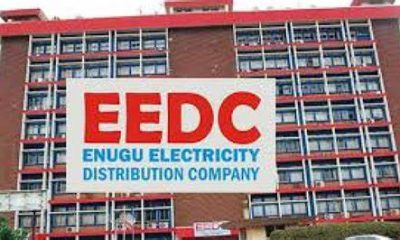ABCON
BDC blames insufficient forex allocation for Naira depreciation
- A senior ABCON official cites insufficient dollar allocations from the CBN as the primary cause for the Naira’s recent depreciation, not the actions of BDC operators.
- The Naira reached a new low of N1520.4, with market volatility highlighted by a 41% drop in daily turnover, signaling tighter liquidity.
- The official criticizes the lack of focus on the AFEM window, suggesting that better management could stabilize the market.
A senior official of the Association of Bureau De Change Operators (ABCON), who chose to remain anonymous, provided insight into the ongoing depreciation of the Naira, stating that a lack of supply was a major factor causing the depreciation.
The official also strongly refuted claims in some quarters that BDC operators are to blame for the recent fluctuations in exchange rates.
The Naira reached a new low on the official market, falling to N1520.4 on Tuesday—a first since March 20. Moreover, daily turnover in May has been notably lower than in the preceding months, signaling tightening liquidity in the foreign exchange market.
What they are saying
The ABCON official emphasized that the central role in the depreciation lies not with the BDC operators but with the diminished dollar allocations from the Central Bank of Nigeria (CBN).
“The CBN last provided dollars to only about 30% of licensed operators,” he explained, highlighting the challenges this poses for the rest.
With insufficient allocation from the CBN, BDCs are compelled to source dollars at higher rates from the parallel market, which significantly impacts the rates they offer to customers.
Addressing the delays in allocation, the official shared, “Most of our members who bid for dollars about four weeks ago are only just receiving their allocations.”
He further disclosed that they have received only around $40 million from the apex bank over the past three months—an amount far from sufficient to satisfy customer demand.
The official also tackled the perception that BDC operators buy dollars at lower official rates to sell them at inflated prices on the open market. He further revealed that less than a third of BDCs had received their dollar allocations from the CBN, and those who did, received them sporadically and insufficiently.
“The volume and frequency of dollar supplies from the CBN are discouragingly low. We often have to source dollars independently.”
“We haven’t received more than $30 to $40 million total in the last three months,” he lamented, describing the pace of allocations as “snail-speed.”
He criticized the government’s approach to handling the situation, stating, “We often ignore fundamental economic issues in this country and chase after less relevant matters. Such strategies inevitably lead to errors.”
Discussing broader economic challenges, the official pointed to systemic issues beyond the forex market.
“The fundamentals, as we all know, are centered around liquidity issues. The AFEM (Autonomous Foreign Exchange Market) window isn’t being adequately utilized. Why isn’t more attention given to what’s happening there, or do they think BDCs operate in isolation from the rest of the economy?” he questioned.
When queried about the high selling rates, the official responded, “Imagine receiving just $10,000 over four weeks. It’s impossible for that amount to remain intact for so long given the demand. Clearly, we must source additional dollars to meet ongoing needs.” He emphasized that the market dynamics are driven by supply constraints and broader economic indicators, not just BDC activities.
He further highlighted the impact of inflation on currency value. “Last year’s N10,000 is barely worth N3,000 to N4,000 today. Due to this uncertainty, many Nigerians are holding onto their dollars as a hedge against inflation.”
This comprehensive account from a senior ABCON official sheds light on the complex dynamics influencing the Naira’s depreciation, pointing to systemic liquidity challenges and policy timing issues rather than malpractices by currency exchange operators.
Forex challenges remain
This steep downturn reflects broader issues within the Nigerian economy, particularly in terms of forex liquidity. Over the last week alone, the Naira has lost about 11% of its value on the official market, underscoring the substantial hurdles that Nigeria faces in stabilizing its currency.
Trading dynamics on that day revealed the erratic nature of the forex market, with the Naira hitting an intra-day high of N1,568/$1 before dipping to a low of N1,350/$1. Such fluctuations suggest a volatile session, where initial sell-offs were perhaps countered by subsequent buy-backs or corrective movements.
Further complicating the forex scenario is the sharp 41% drop in daily turnover on the same day, with market activity plummeting to $128.76 million from $217.64 million recorded the previous day.
This dramatic fall highlights the unpredictable nature of dollar supply, which had surged by a significant 91% just the day before, emphasizing the capricious supply dynamics in the official market.
Despite these turbulent conditions, Nigeria’s foreign exchange reserves have shown some resilience, having increased by $262 million since April 19, 2024.
This improvement began around the time the Governor of the Central Bank of Nigeria, Yemi Cardoso, stated that the apex bank would not actively defend the Naira despite a prolonged dip in the country’s reserves. This strategic reserve accumulation could provide some support for the Naira if managed effectively.















